According to the Department of Agriculture and Environment (DARD) of Tien Giang province, implementing the inter-sectoral signing program, one of the important tasks that the agricultural sector focuses on implementing is developing the agricultural cooperative model associated with building new rural areas and the One Commune One Product (OCOP) Program.
Many cooperatives in the province have promoted product consumption linkage associated with OCOP product development. |
Accordingly, building new rural areas and OCOP are two key programs that the agricultural sector is focusing on implementing in the process of restructuring the sector. In particular, agricultural cooperatives have actively contributed to the implementation of these goals. Cooperatives have become the core force in developing agricultural production and building brands for local agricultural products.
At the same time, creating a sustainable value chain for OCOP products. In particular, cooperatives participate in training and transferring new technologies to farmers, helping to improve product quality and optimize production processes; actively supporting product development and expanding markets for OCOP products.
After more than 12 years of implementing the new rural construction and more than 5 years of implementing the OCOP Program, the province has achieved certain results. One of the highlights is that the KTTT has stabilized and developed rapidly in both quality and quantity. Many models of consumption linkage according to the value chain have been formed.
At the same time, many rural agricultural products have built their brands through OCOP certification. Key agricultural raw material areas have been established to meet domestic consumption and export requirements. By the end of 2024, the province will have 199 agricultural cooperatives with over 47,000 members, an increase of 150 cooperatives compared to before the construction of the new rural areas.
The province has supported the development and recognition of 350 OCOP products including: 1 5-star product (Vinh Phat soursop tea), 17 potential 5-star products, 82 4-star products and 250 3-star products with a total of 165 participating entities (31 cooperatives, 54 enterprises and 80 production and business households).
According to the Department of Agriculture and Environment, besides the achieved results, the process of developing cooperatives associated with building new rural areas and OCOP products in the province also has shortcomings and limitations. First of all, some localities are hasty and force the establishment of cooperatives to meet criteria on production organization or expand the scale of members by force, not voluntarily, leading to the case where some cooperatives after establishment operate ineffectively, members do not contribute capital, do not use products and services. After being assessed and assessed that the commune met the criteria for production organization, some places did not care to support to maintain and improve the criteria. Regarding the internal operations of agricultural cooperatives, weak management and operation capacity led to ineffective operations. This makes it difficult to build and implement development plans. Due to lack of capital and knowledge, cooperatives are not bold in applying science and technology, still using traditional production methods, leading to low productivity and unstable product quality, making it difficult to compete with products of other models. The development of distribution channels, marketing and product promotion, especially for OCOP products, is still limited. |
In particular, the cooperative's products certified as OCOP include fresh and processed products associated with the province's key agricultural products such as: Hoa Loc mango, Tan Phuoc pineapple, Cai Lay durian, Go Cong cherry jam, Cho Gao dragon fruit, etc.
In addition, in the process of building the new rural areas, many outstanding cooperative models have emerged, typically with new ways of doing things, production associated with value chains, and development of OCOP products. Typically, in the field of rice production and consumption, there is a linkage model between My Quoi Agricultural Service Cooperative and Phuoc Loc Thien Ho Company Limited in Hau My Bac B commune, Cai Be district according to Resolution 07 of the Provincial People's Council. The linkage scale is 200 - 300 hectares/year with ST24 and Nang Hoa 9 rice varieties and rice products have been certified with 4-star OCOP.
Or in the field of fruit production, there are durian cooperative models such as Ngu Hiep, Cam Son, Hiep Duc, which organize production members to achieve VietGAP certification and build growing area codes. Cooperatives link with businesses to consume products through long-term stable linkage projects/plans. Products of cooperatives are all certified with 3-star OCOP.
In the field of vegetable production and consumption, some typical cooperatives such as Go Cong Safe Vegetables, Tan Dong Safe Vegetables, Thanh Hung Safe Vegetables, Phu Quoi, Hoa Thanh have signed long-term and stable consumption contracts with Saigon CO.OP, Bach Hoa Xanh, BigC... with an output of about 5 - 7 tons of vegetables/day/cooperative. Some products of cooperatives are OCOP certified such as: Chinese cabbage, Chinese broccoli, Chinese bok choy.
CONTINUE TO ACCOMPANY AND SUPPORT
In reality, despite many outstanding results, the development of agricultural cooperative models associated with the construction of new rural areas and OCOP products still faces many difficulties. To achieve the set goals as expected, it requires the joint support of all sectors.
Cooperatives in the province need support to develop. |
According to the Department of Agriculture and Environment, in the process of building new rural areas to improve the operational capacity of agricultural cooperatives, the agricultural sector has implemented many support policies. In particular, there are two policies to support infrastructure investment and support young staff working for cooperatives.
As a result, in the period of 2019 - 2024, the sector has supported 61 construction items for 45 agricultural cooperatives with an investment of 42.75 billion VND. From 2018 to present, the agricultural sector has also supported 70 young workers to work in 50 cooperatives with a support budget of about 5.5 billion VND.
In the process of building and developing OCOP products, the agricultural sector also focuses on implementing policies to support entities participating in trade promotion activities, exhibition fairs; supporting funding for the construction of OCOP product display stores (14 stores). This has created conditions for businesses, cooperatives, and production facilities to introduce and promote, seek opportunities, connect supply and demand, strengthen cooperation, and link product consumption...
Also according to the Department of Agriculture and Environment, in the coming time, the agricultural sector will continue to coordinate with the Provincial Cooperative Union and the Provincial Farmers' Association to deploy a number of tasks and solutions to develop agricultural cooperatives associated with building new rural areas and OCOP products.
Accordingly, one of the key solutions is to continue to coordinate and promote the implementation of solutions to improve the quality of agricultural cooperative operations on the basis of implementing mechanisms and policies to support cooperatives according to current regulations.
Specifically, strengthening consulting and training to improve management and production capacity; implementing support policies on capital, land, infrastructure, science and technology, and trade promotion for cooperatives participating in the program of building new rural areas and developing OCOP products.
The agricultural sector will continue to develop exemplary cooperative models, typical in applying high technology, clean production, ensuring product quality, thereby spreading this model to the community. At the same time, encourage linkage and cooperation between cooperatives with cooperatives, with enterprises, and processing facilities through policies to support linkage in production and consumption according to Resolution 07 of the Provincial People's Council.
Cooperatives also need to be proactive in organizing production, innovating their methods of operation and being creative in developing OCOP products. Cooperatives do not expect or depend on support from state agencies, but need to proactively seek opportunities and markets.
T. DAT
Source: https://baoapbac.vn/kinh-te/202504/tien-giang-phat-trien-hop-tac-xa-nong-nghiep-gan-voi-xay-dung-nong-thon-moi-va-chuong-trinh-ocop-1039327/



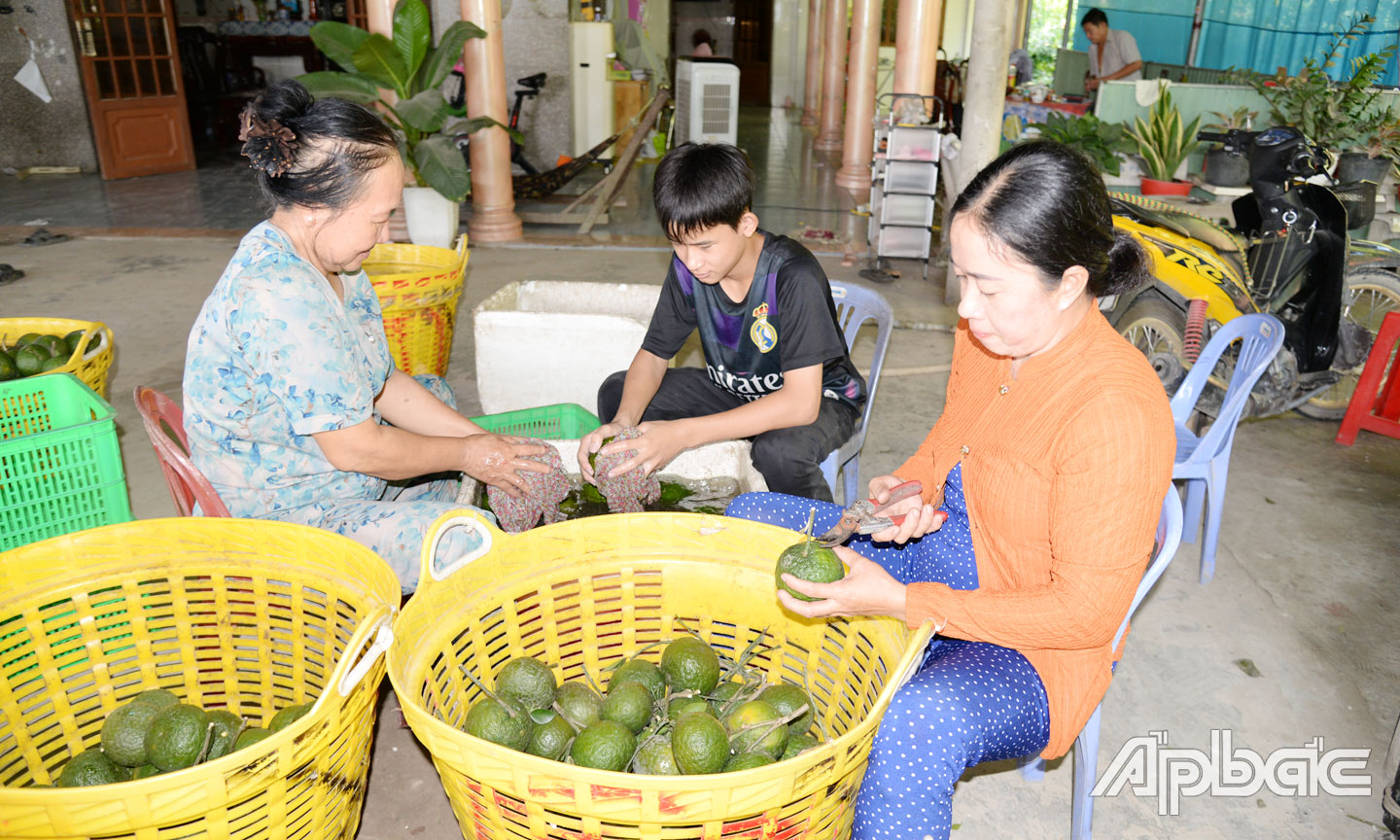

![[Photo] General Secretary To Lam receives Chairman of the Liberal Democratic Party, Japanese Prime Minister Ishiba Shigeru](https://vstatic.vietnam.vn/vietnam/resource/IMAGE/2025/4/27/63661d34e8234f578db06ab90b8b017e)
![[Photo] Fireworks light up Hanoi sky to celebrate national reunification day](https://vstatic.vietnam.vn/vietnam/resource/IMAGE/2025/4/28/5b4a75100b3e4b24903967615c3f3eac)
![[Photo] Japanese Prime Minister's wife visits Vietnamese Women's Museum](https://vstatic.vietnam.vn/vietnam/resource/IMAGE/2025/4/27/8160b8d7c7ba40eeb086553d8d4a8152)
![[Photo] General Secretary To Lam's wife and Japanese Prime Minister's wife make traditional green rice cakes together](https://vstatic.vietnam.vn/vietnam/resource/IMAGE/2025/4/27/7bcfbf97dd374eb0b888e9e234698a3b)
![[Photo] Living witnesses of the country's liberation day present at the interactive exhibition of Nhan Dan Newspaper](https://vstatic.vietnam.vn/vietnam/resource/IMAGE/2025/4/27/b3cf6665ebe74183860512925b0b5519)

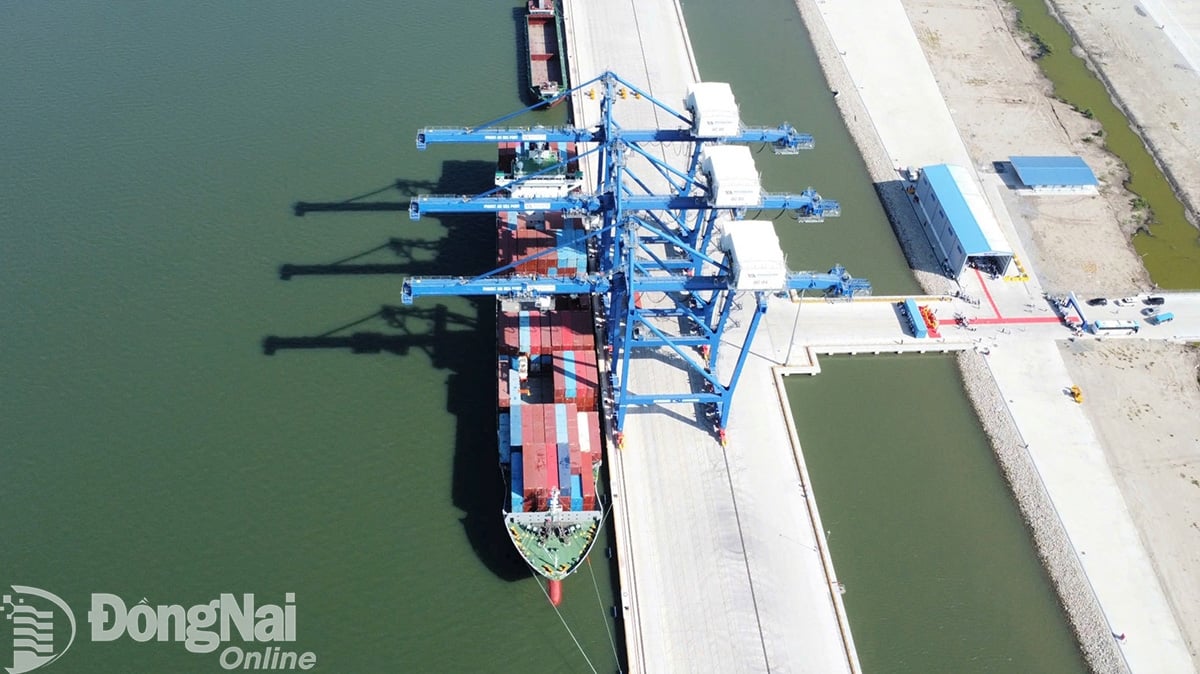

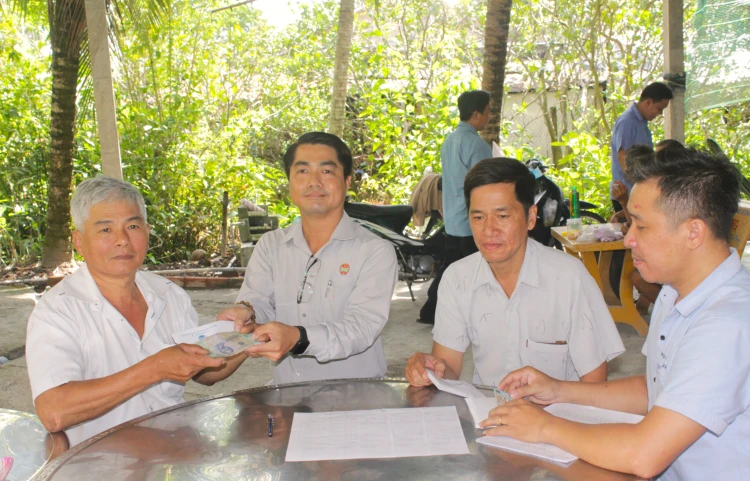
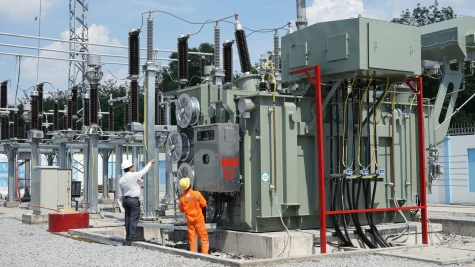
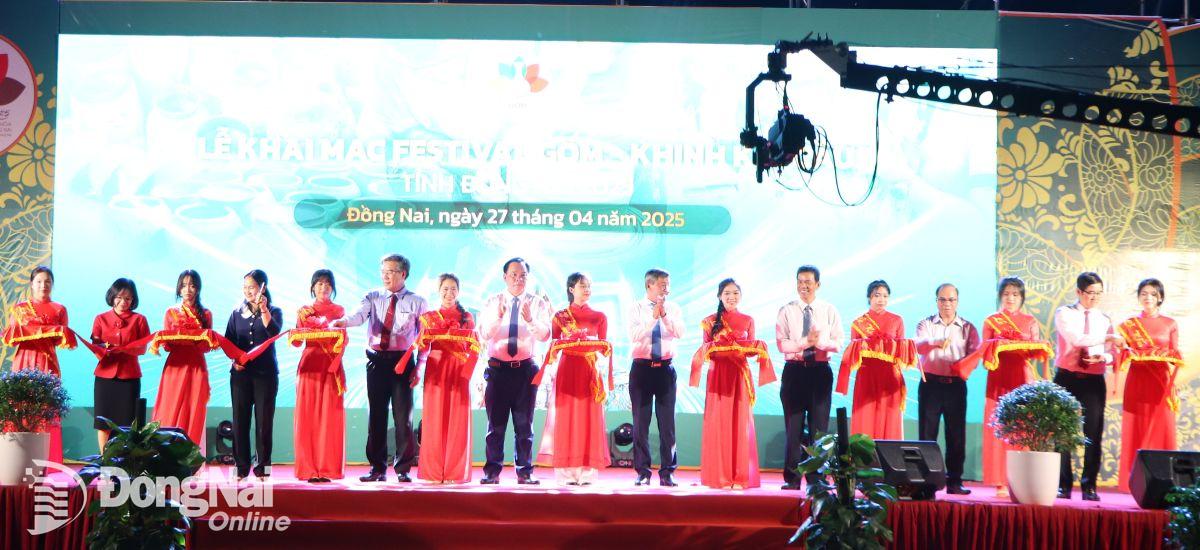




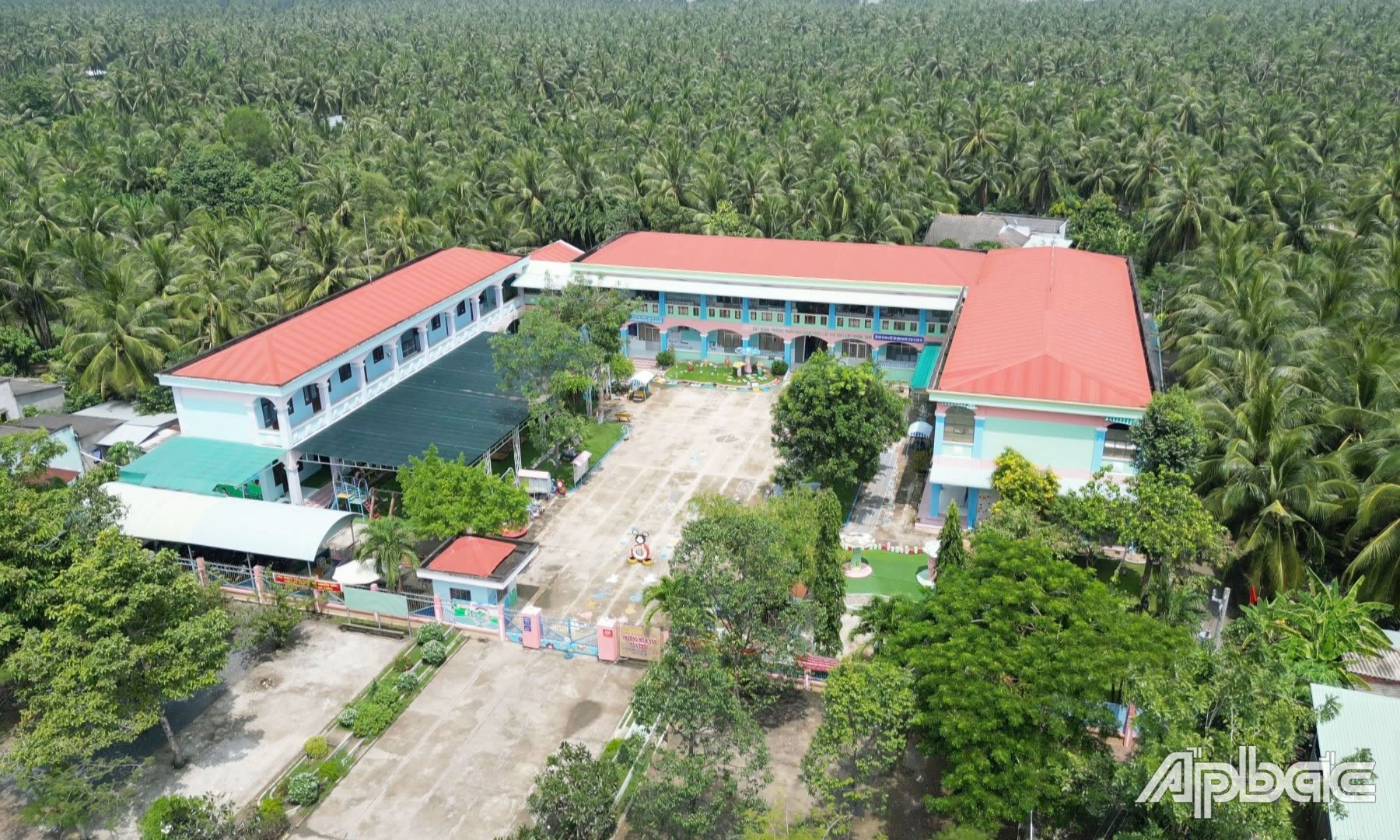



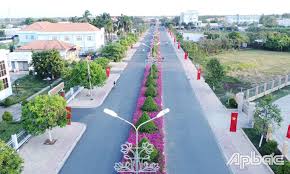
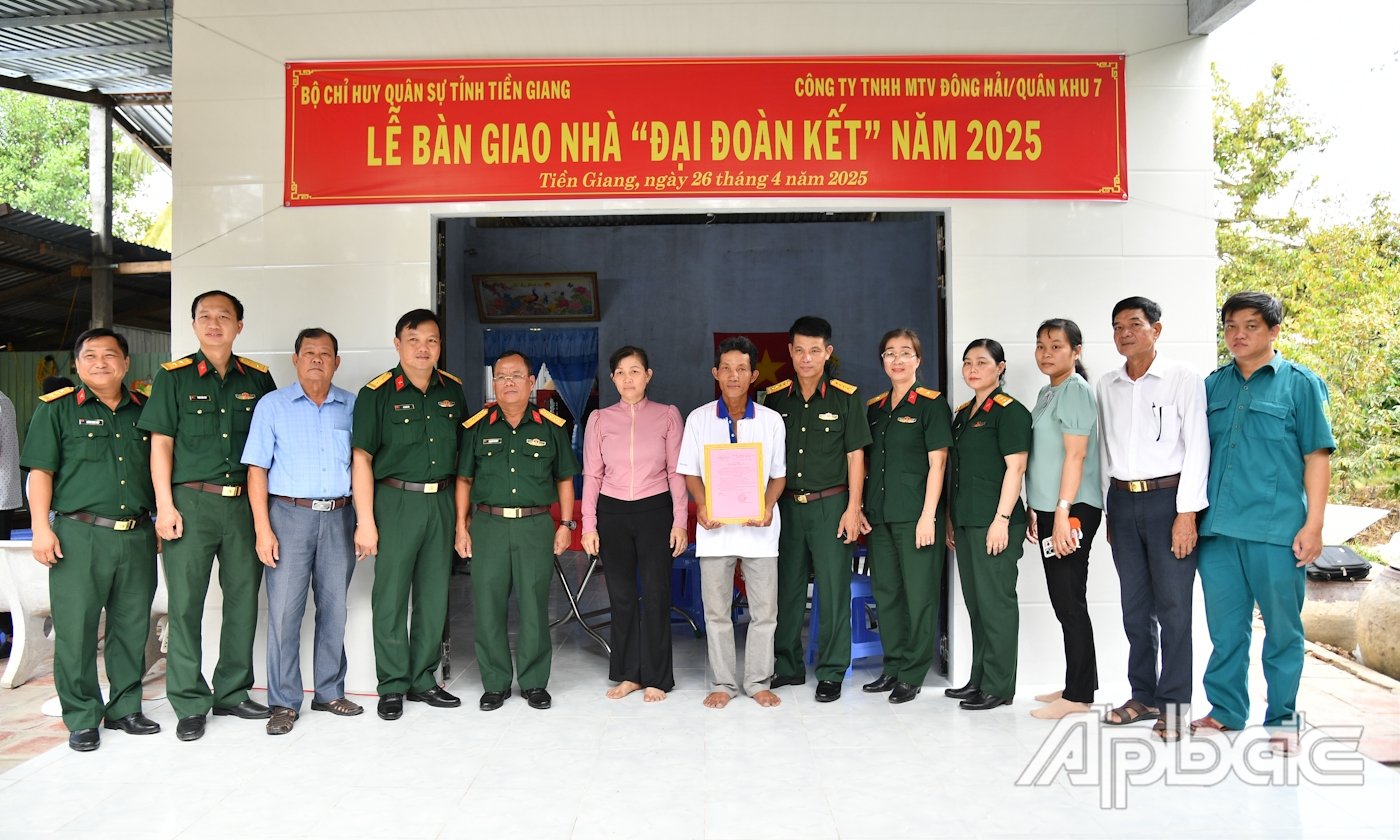










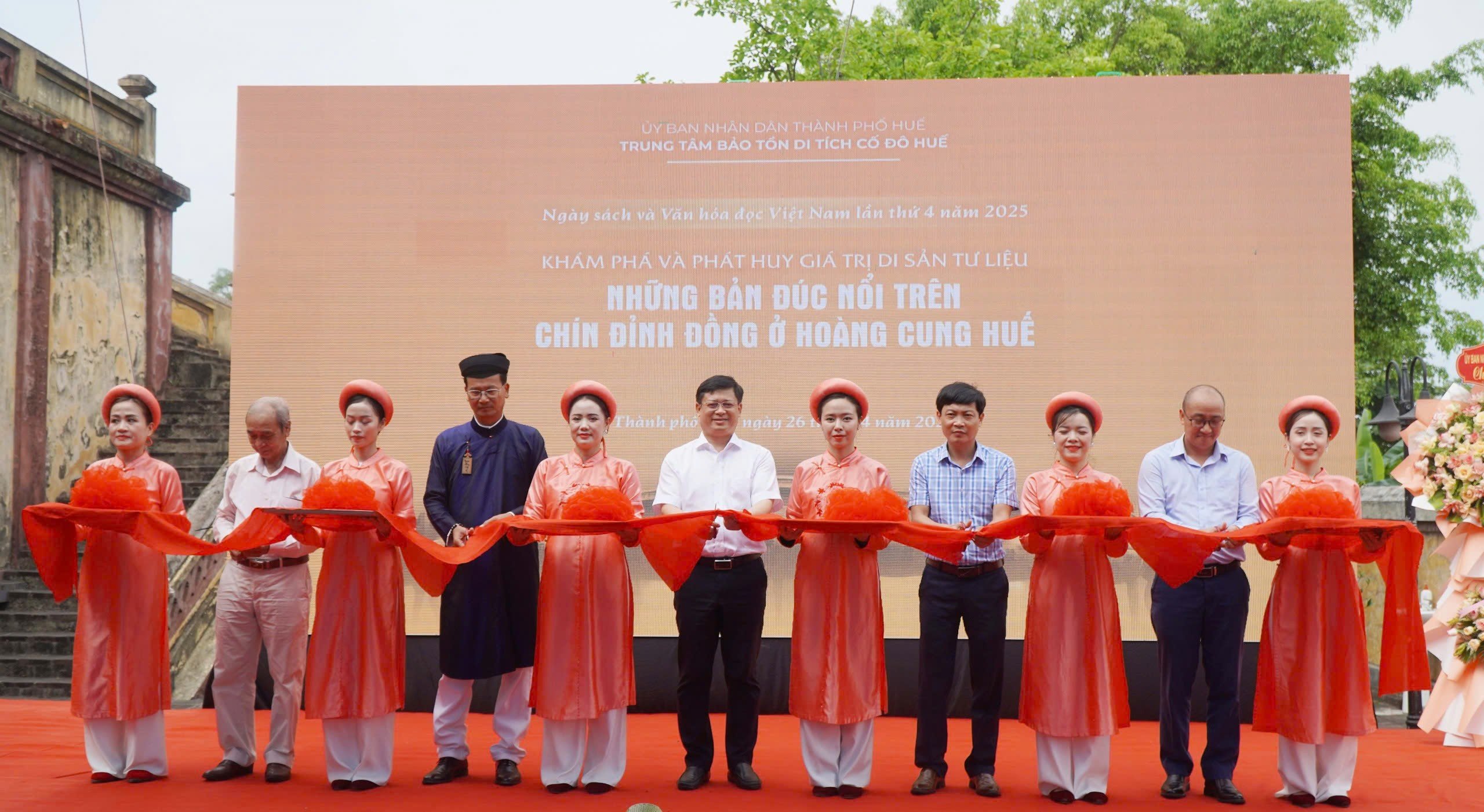
























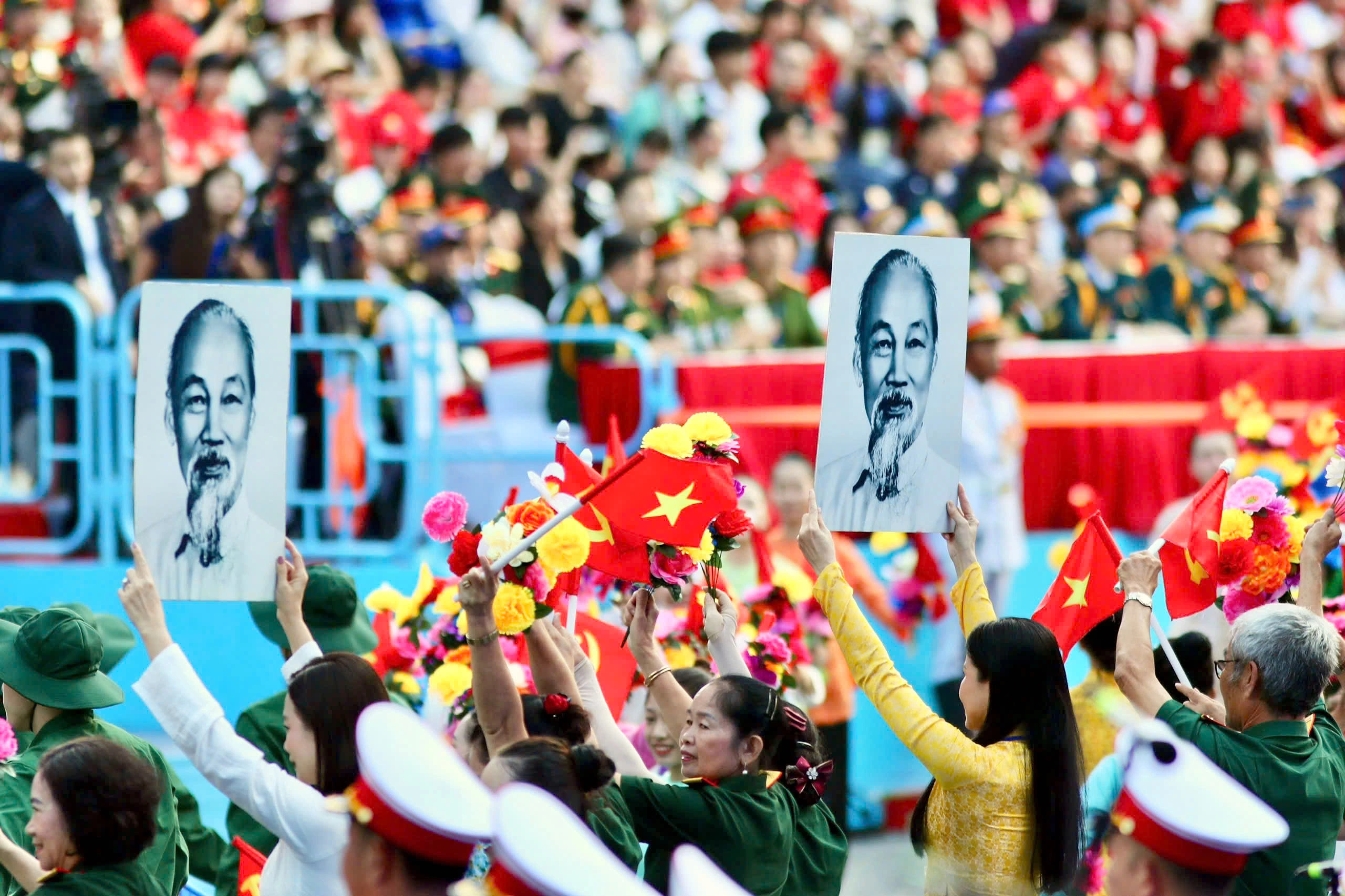




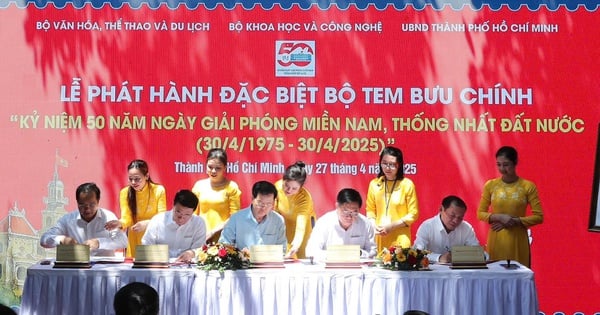

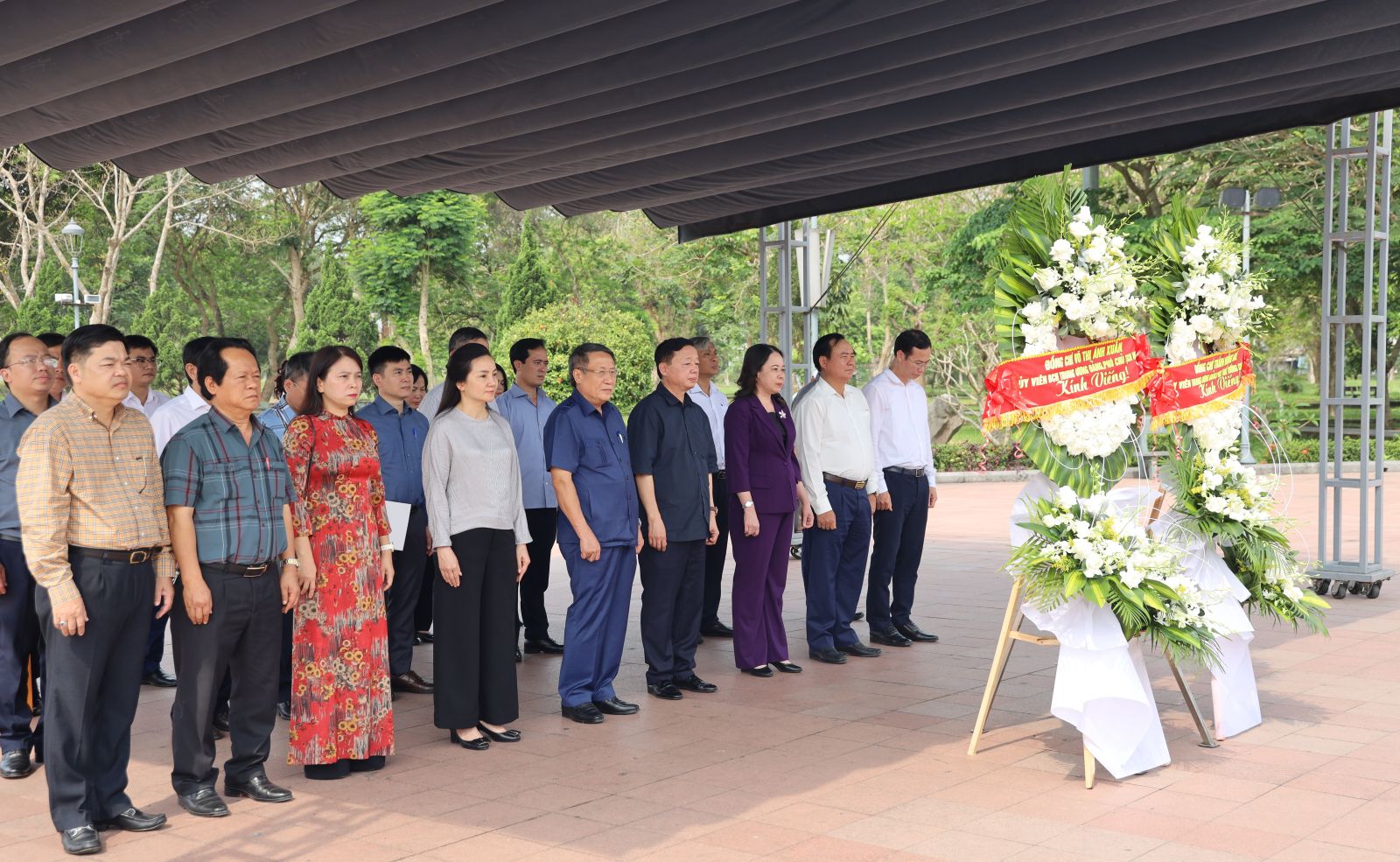

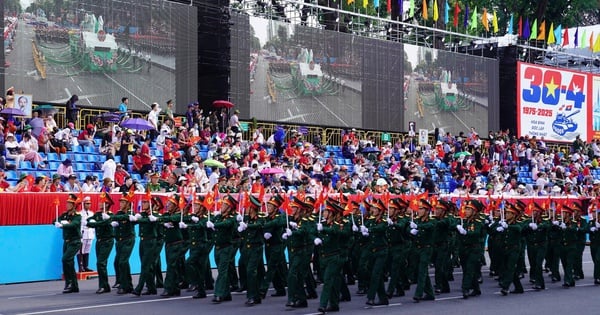

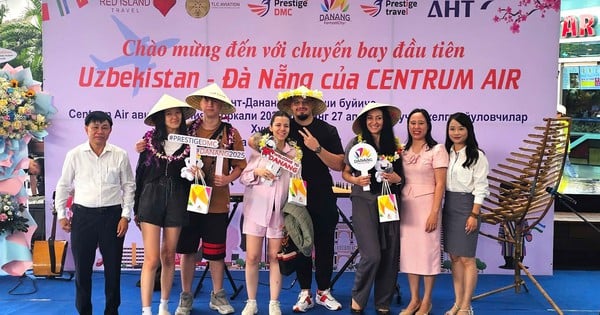

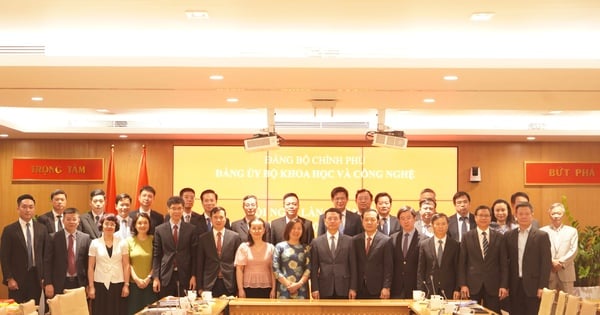






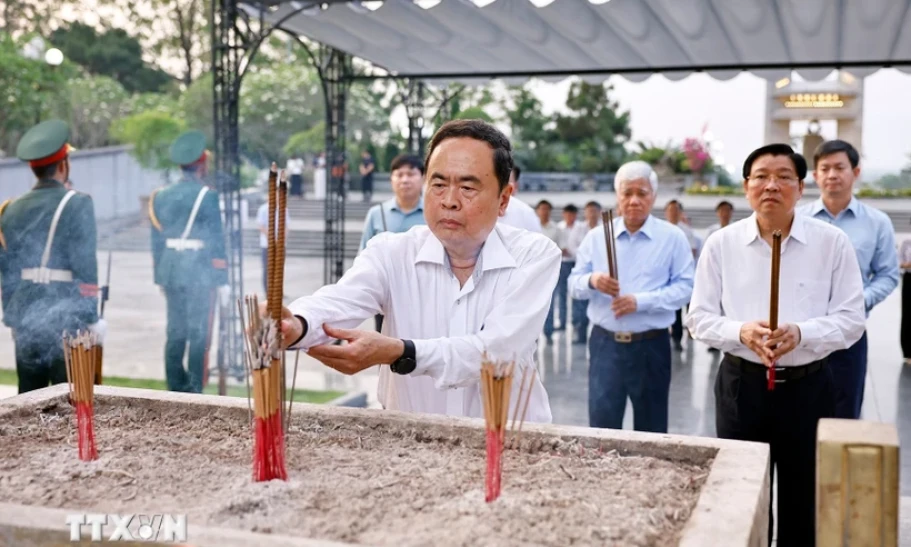
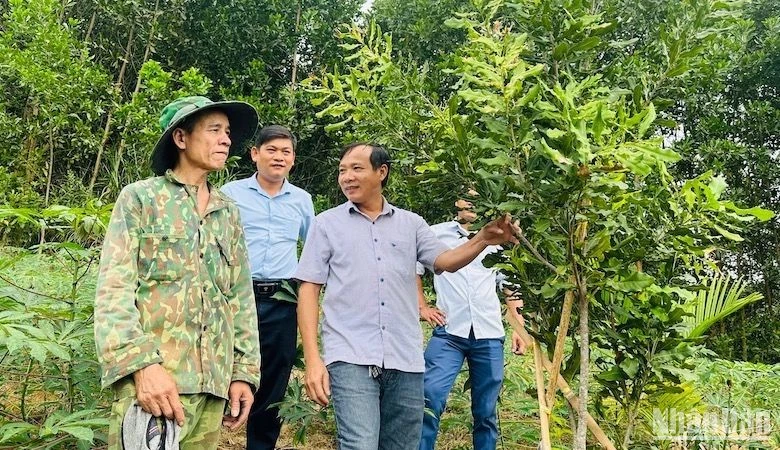


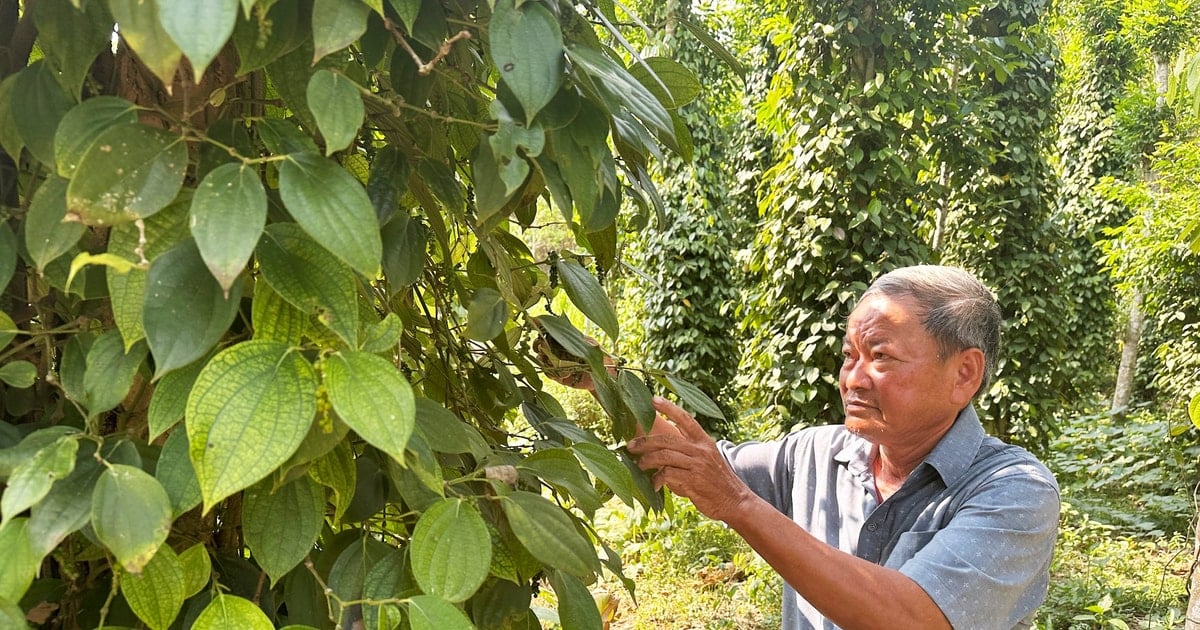

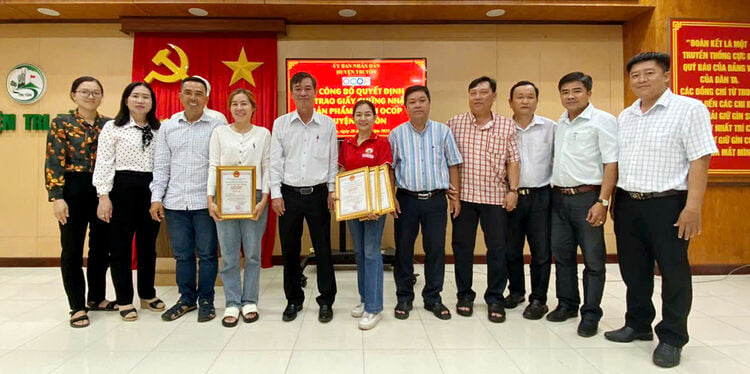

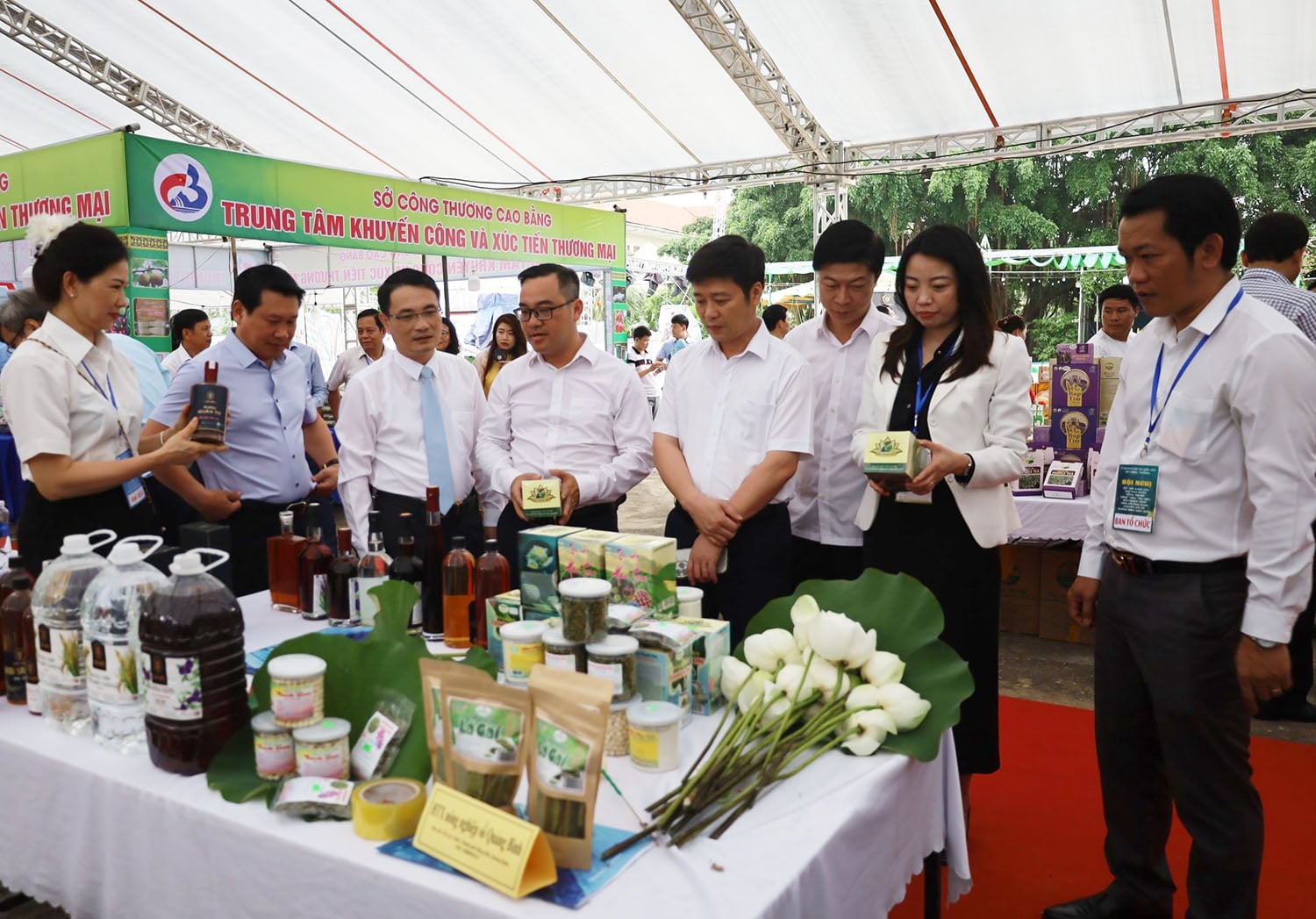

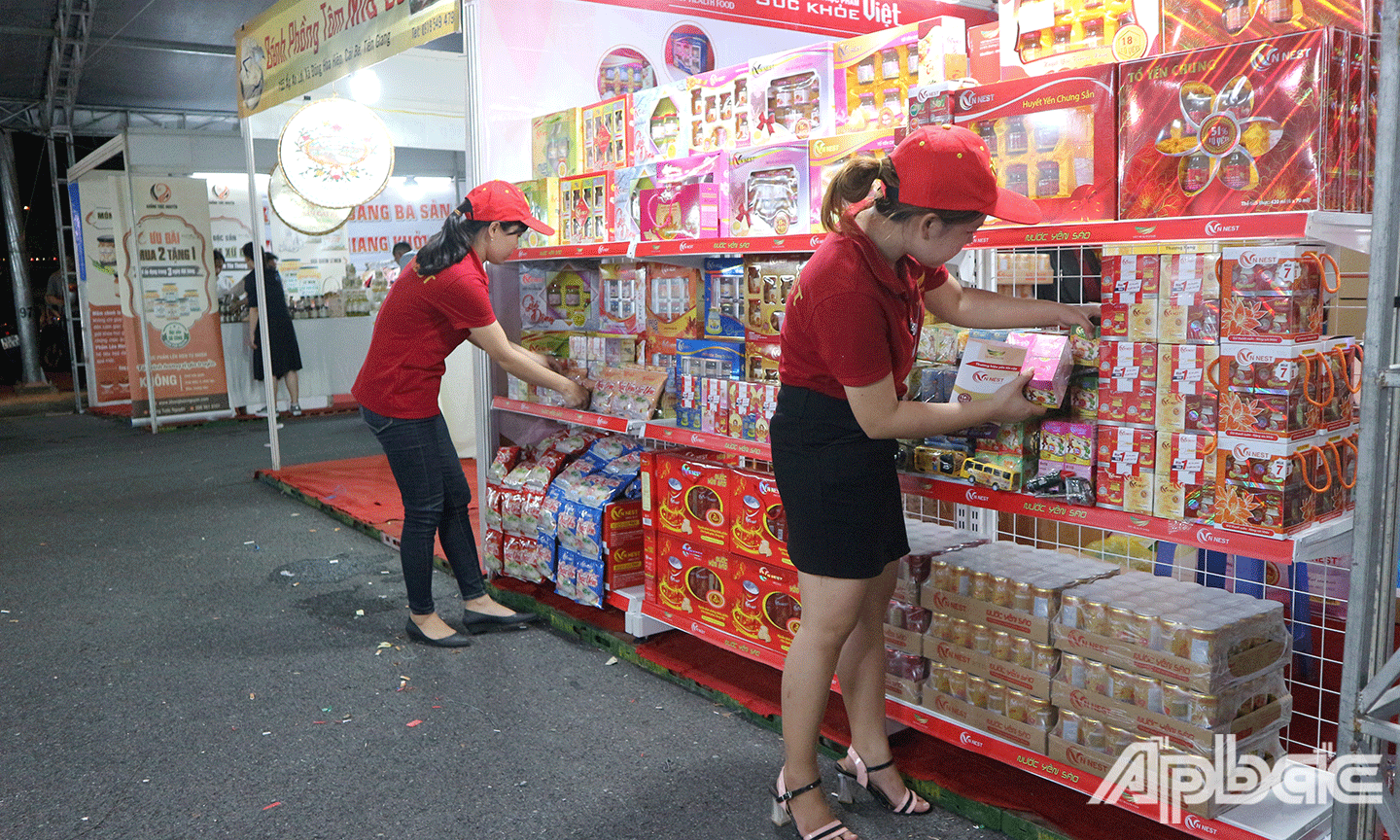
Comment (0)